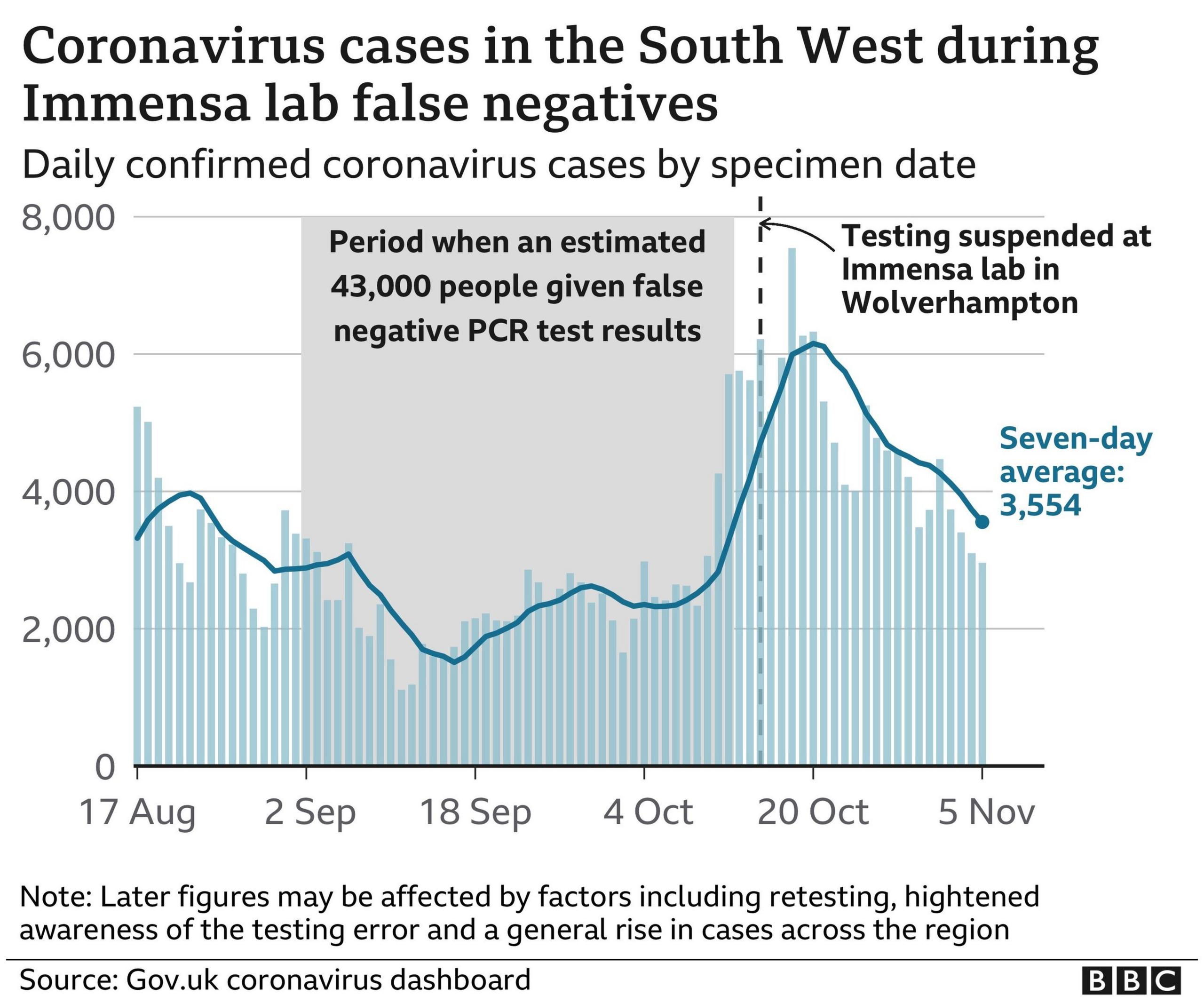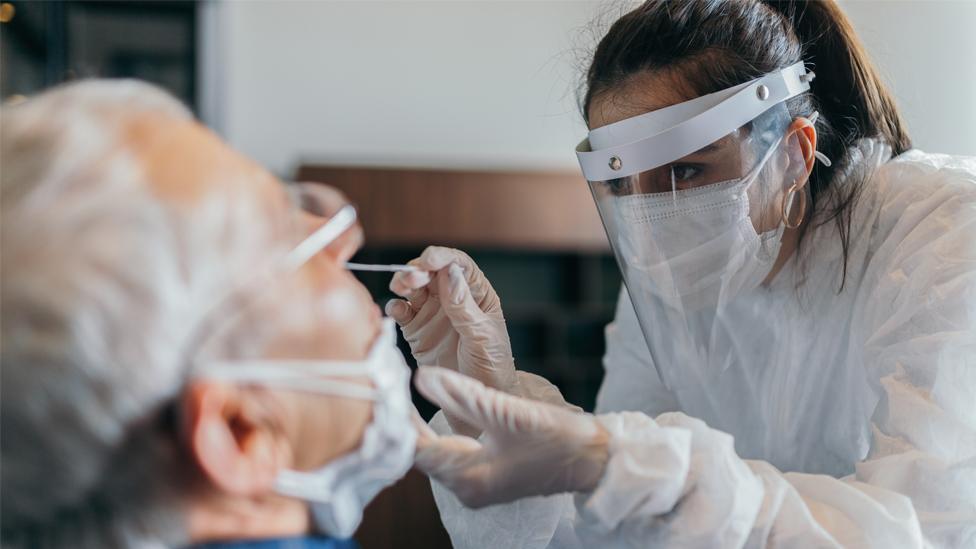Cheltenham MP calls for urgent answers over PCR test errors
- Published

The Immensa Health Clinic in Wolverhampton is being investigated over errors in thousands of PCR tests
An MP is calling for an urgent explanation into how a Covid-19 testing laboratory produced thousands of false negative results.
Alex Chalk is one of six Gloucestershire MPs who have written to the UK Health Security Agency (UKHSA).
It is estimated 43,000 people mainly from the south-west were given incorrect PCR test results from the Immensa Health Clinic in Wolverhampton.
The BBC has contacted the UKHSA for comment.
The number of cases is the region rose after the errors were discovered.
During that time, cases tripled in the Forest of Dean and the Cotswolds and more than quadrupled in Gloucester.
'Critical lessons'
Mr Chalk, MP for Cheltenham, said: "In a public health emergency what you need to get is that early learning. So those critical lessons can be learnt.
"Was this a human error or a technical error?
"Was it a one off? We need to know why the statistical anomalies were not picked up.
"The fact is that there were people going around in Cheltenham and Gloucestershire with this illness without knowing about it, and it's not enough to wait months and months and months for some investigation to report."
Issues at the laboratory emerged when people who had tested positive with lateral flow tests (LFTs) subsequently had negative PCR results from the lab between 2 September and 12 October.

It is thought that about 43,000 people in England and Wales may have been wrongly told their Covid-19 test was negative.
The error could mean thousands of people infected with Covid were wrongly told to stop isolating, and may have infected others.
Testing at the lab has since been suspended and those affected are being contacted.
'Fully collaborating'
But the news has prompted questions about how it won a multi-million pound government contract.
Speaking to the BBC in October, Prof Alan McNally, from the University of Birmingham, said he was "astonished" by the revelation.
"It comes down to quality control and quality assurance, oversight and management," he said.
"I cannot fathom the failings that would lead to this level of false negative results."
The company has previously said it was "fully collaborating" with health officials.
- Published15 October 2021

- Published20 October 2021

- Published20 October 2021
